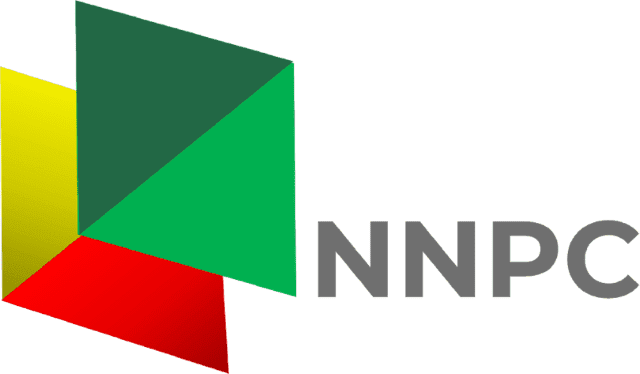In a compelling address delivered at the 2025 Chartered Banker Induction and Prize Awards Ceremony organized by the Chartered Institute of Bankers of Nigeria (CIBN) in Lagos, Lady Dr. Ada Chukwudozie, Chairman of Keystone Bank Limited, called on the next generation of Nigerian bankers to anchor their careers on the pillars of integrity, innovation, and lifelong learning. Speaking to over one thousand newly inducted bankers on Saturday, Chukwudozie emphasized that these values are essential for success in Nigeria’s rapidly evolving financial landscape, where technological advancements and ethical challenges are reshaping the industry. Her remarks, delivered under the theme “The Smart Banker’s Compass: Innovate, Adapt, and Solve Like a Pro,” underscored the critical role of professionalism and ethical conduct in sustaining trust and driving progress in the banking sector.
A Call to Uphold Integrity as the Bedrock of Banking
Lady Dr. Ada Chukwudozie, a seasoned leader with over 29 years of experience in corporate governance, business strategy, and management across multiple sectors, used her platform at the CIBN induction ceremony to highlight integrity as the cornerstone of banking. “The banker of the future must innovate, adapt, and above all, remain ethical,” she declared. “Profit without integrity is destructive, and progress without trust is unsustainable.” Her words resonated deeply with the audience, composed of young professionals entering a sector where public trust is paramount but often tested by economic pressures and ethical dilemmas.
The Nigerian banking industry has faced significant challenges in recent years, including economic volatility, regulatory scrutiny, and public skepticism about financial institutions. High-profile cases of fraud, mismanagement, and regulatory breaches have occasionally tarnished the sector’s reputation, making Chukwudozie’s emphasis on integrity particularly timely. She argued that ethical conduct is not merely a regulatory requirement but the “true capital” of banking, a foundation that ensures long-term sustainability and public confidence. “As a banker and private sector leader, I see firsthand how ethical conduct fosters investor confidence, ensures corporate compliance, and supports resilient economic systems,” she added, drawing on her extensive experience to contextualize her message.
Chukwudozie’s call for integrity aligns with the broader mission of the CIBN, which has been a vanguard of professionalism and ethical standards in Nigeria’s banking industry since its establishment. By inducting over one thousand new members, the institute demonstrated its growing influence and commitment to building a cadre of professionals equipped to navigate the complexities of modern banking. Chukwudozie commended the CIBN for its pivotal role in promoting excellence, noting that the large number of inductees reflects both the institute’s relevance and the increasing importance of ethical standards in the financial system.
Innovation as a Driver of Transformation
In addition to integrity, Chukwudozie stressed the importance of innovation in ensuring that Nigerian bankers remain competitive in a globalized and technology-driven financial landscape. The theme of the 2025 CIBN induction ceremony, “The Smart Banker’s Compass: Innovate, Adapt, and Solve Like a Pro,” served as a fitting backdrop for her remarks. She highlighted that while technology is a key driver of the industry, it must be harnessed responsibly to deliver meaningful value to customers and society. “Technology and innovation are transforming the way we bank, but they must be guided by a commitment to solving real problems and improving lives,” she said.
The Nigerian banking sector has undergone significant transformation over the past two decades, driven by advancements in digital banking, fintech innovations, and regulatory reforms. Mobile banking apps, contactless payments, and blockchain technology have revolutionized how financial services are delivered, making them more accessible to millions of Nigerians, including those in underserved rural areas. However, these advancements have also introduced new challenges, such as cybersecurity risks and the need for continuous upskilling to keep pace with technological change. Chukwudozie’s call for innovation reflects the need for bankers to embrace these changes while maintaining a customer-centric approach.
Keystone Bank, under Chukwudozie’s leadership, has been at the forefront of digital transformation in Nigeria’s banking sector. The bank has invested heavily in technology-driven solutions, such as its robust Keystone Mobile App, which allows customers to perform transactions seamlessly from their smartphones. The bank’s focus on digital innovation aligns with broader industry trends, as evidenced by its recognition as the “Retail Bank of the Year” at the 2024 Africa Industrial and Development Conference and Awards. Chukwudozie’s emphasis on innovation at the CIBN ceremony thus serves as both a reflection of Keystone Bank’s strategic priorities and a broader call to action for the industry.
Lifelong Learning in a Dynamic Industry
The third pillar of Chukwudozie’s message—lifelong learning—underscored the importance of continuous professional development in a sector characterized by rapid change. “The financial landscape is evolving at an unprecedented pace,” she noted. “To remain relevant, bankers must commit to lifelong learning, adapting to new technologies, regulations, and customer expectations.” Her remarks highlighted the need for bankers to stay ahead of industry trends by acquiring new skills and knowledge throughout their careers.
The CIBN induction ceremony itself is a testament to the importance of professional development in banking. The institute’s rigorous training and certification programs ensure that its members are equipped with the technical expertise and ethical grounding needed to excel in the industry. By addressing over one thousand new inductees, Chukwudozie was speaking to a group of professionals who have already demonstrated a commitment to learning and growth. She urged them to view their induction not as the end of their educational journey but as the beginning of a lifelong pursuit of excellence.
Chukwudozie’s own career exemplifies the value of lifelong learning. With a background spanning banking, oil and gas, energy, and manufacturing, she has consistently adapted to new challenges and opportunities. Her appointment as Chairman of Keystone Bank in 2024, following a strategic restructuring by the Central Bank of Nigeria (CBN), reflects her ability to navigate complex and dynamic environments. Her leadership at Keystone Bank has been marked by a focus on strengthening corporate governance, enhancing customer service, and driving sustainable growth, all of which require a deep understanding of industry trends and best practices.
The Role of Banking in Nigeria’s Economic Development
Chukwudozie’s address went beyond professional advice, touching on the broader role of banking in supporting Nigeria’s economic development. “Banking is not just about financial calculations,” she said. “It’s about supporting small businesses, helping families achieve their goals, and ensuring inclusive access to financial services.” Her remarks underscored the critical role that bankers play in fostering economic growth, particularly in a country like Nigeria, where small and medium enterprises (SMEs) are the backbone of the economy.
SMEs account for a significant portion of Nigeria’s GDP and employment, yet many struggle to access affordable financing due to high interest rates, stringent lending criteria, and limited financial literacy. Keystone Bank has made SME lending a core part of its mandate, partnering with organizations like the Lagos Chamber of Commerce and Industry (LCCI) to provide training and financial support to small businesses. The bank’s recent Memorandum of Understanding (MoU) with the LCCI to launch the MSME Mini Business Boot Camp is a prime example of its commitment to fostering entrepreneurial growth and economic advancement.
By emphasizing the role of banking in supporting small businesses and families, Chukwudozie highlighted the industry’s potential to drive financial inclusion. Nigeria has made significant strides in this area, with initiatives like the CBN’s Biometric Verification Number (BVN) system and the growth of mobile money platforms expanding access to financial services. However, millions of Nigerians, particularly in rural areas, remain unbanked or underbanked. Chukwudozie’s call for bankers to innovate and adapt reflects the need to develop solutions that bridge this gap and bring more people into the financial system.
Keystone Bank’s Leadership in Nigeria’s Banking Sector
As Chairman of Keystone Bank, Lady Dr. Ada Chukwudozie brings a wealth of experience and a forward-thinking approach to leadership. Appointed in 2024 as part of a CBN-led restructuring, she has overseen a period of significant transformation at the bank, including a 150% growth in new account openings and recognition for excellence in retail banking. Under her leadership, Keystone Bank has reaffirmed its commitment to financial strength, customer satisfaction, and corporate social responsibility, positioning itself as a trusted partner for individuals and businesses alike.
The bank’s strategic realignment, guided by Chukwudozie and Managing Director/CEO Hassan Imam, has focused on streamlining operations, enhancing service delivery, and leveraging technology to meet customer needs. The appointment of a new board of directors, including seasoned professionals like Abdul Rahman Esene, Fola Akande, and Ladi Oluwole, has further strengthened Keystone Bank’s governance structure, ensuring it is well-positioned to navigate Nigeria’s evolving economic landscape.
Keystone Bank’s commitment to innovation is evident in its investment in digital banking solutions, such as the Evolve Savings Account for students and the Pink Account for female professionals and SMEs. These products reflect the bank’s focus on financial inclusion and customer-centric services, aligning with Chukwudozie’s vision of a banking sector that serves all segments of society.
The CIBN’s Role in Shaping the Future of Banking
The Chartered Institute of Bankers of Nigeria has long been a cornerstone of professionalism in the country’s financial sector. Under the leadership of President Dr. Ken Opara, the CIBN has prioritized initiatives that promote financial innovation, ethical conduct, and youth engagement. Its 2025 induction ceremony, attended by over one thousand new members, highlighted the institute’s growing influence and its role in preparing bankers for the challenges of the future.
Chukwudozie’s praise for the CIBN underscored its importance in fostering a culture of excellence and accountability. “The large number of inductees today is a testament to the institute’s relevance and the increasing demand for ethical and professional standards in banking,” she said. The CIBN’s focus on training, certification, and continuous professional development ensures that its members are equipped to meet the demands of a dynamic industry, from mastering fintech solutions to navigating complex regulatory frameworks.
Broader Implications for Nigeria’s Financial Sector
Chukwudozie’s address at the CIBN induction ceremony carries significant implications for Nigeria’s financial sector. Her emphasis on integrity, innovation, and lifelong learning reflects the qualities needed to restore public trust, drive economic growth, and compete in a globalized financial market. As Nigeria grapples with economic challenges such as inflation, currency volatility, and unemployment, the banking sector has a critical role to play in stabilizing the economy and supporting sustainable development.
The call for innovation also aligns with global trends in banking, where technologies like artificial intelligence, blockchain, and digital wallets are redefining the industry. Nigerian banks must adopt these technologies while addressing local challenges, such as infrastructure deficits and financial exclusion. Chukwudozie’s message serves as a reminder that innovation must be inclusive, ensuring that the benefits of technological advancements reach all segments of society.
Moreover, her focus on lifelong learning highlights the need for a skilled and adaptable workforce. As the financial sector becomes increasingly complex, bankers must stay abreast of emerging trends, from environmental, social, and governance (ESG) principles to digital transformation. Chukwudozie’s earlier remarks at an Institute of Chartered Accountants of Nigeria (ICAN) event, where she urged accountants to embrace technology and address the digital skill gap, reflect a consistent theme in her advocacy for professional development across financial disciplines.
Conclusion: A Roadmap for the Future
Lady Dr. Ada Chukwudozie’s address at the 2025 CIBN induction ceremony was more than a motivational speech; it was a roadmap for the future of Nigerian banking. By emphasizing integrity, innovation, and lifelong learning, she provided a clear vision for how the next generation of bankers can navigate the challenges and opportunities of a rapidly changing industry. Her leadership at Keystone Bank, combined with her advocacy for ethical and innovative practices, positions her as a transformative figure in Nigeria’s financial sector.
As the newly inducted bankers embark on their careers, they carry with them the responsibility to uphold the values espoused by Chukwudozie and the CIBN. By embracing integrity, they can rebuild public trust in the banking sector. By prioritizing innovation, they can drive progress and inclusivity. And by committing to lifelong learning, they can ensure that they remain relevant in an ever-evolving industry. For Keystone Bank, the CIBN, and Nigeria’s financial sector as a whole, Chukwudozie’s message is a call to action to build a stronger, more resilient, and more inclusive future.







